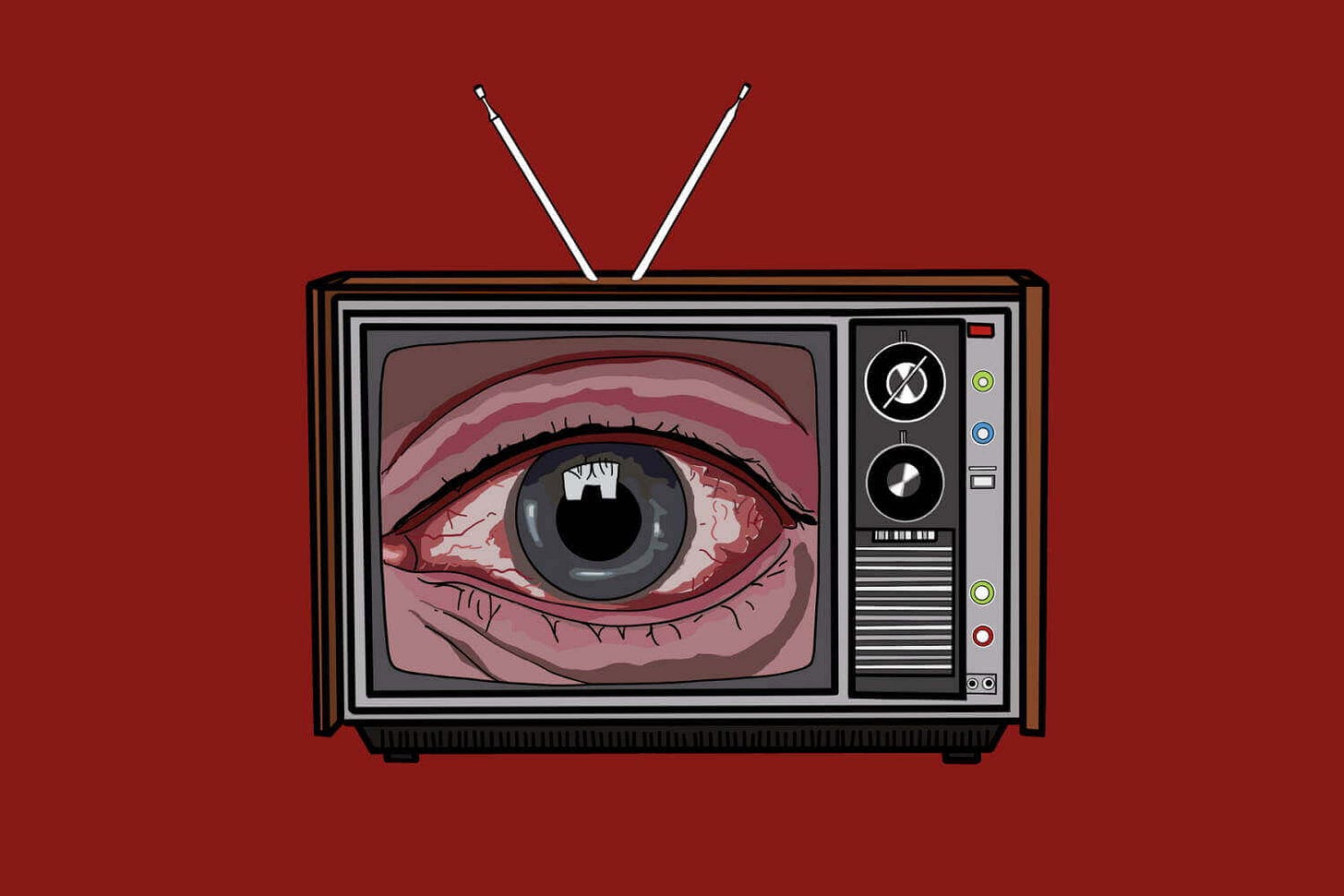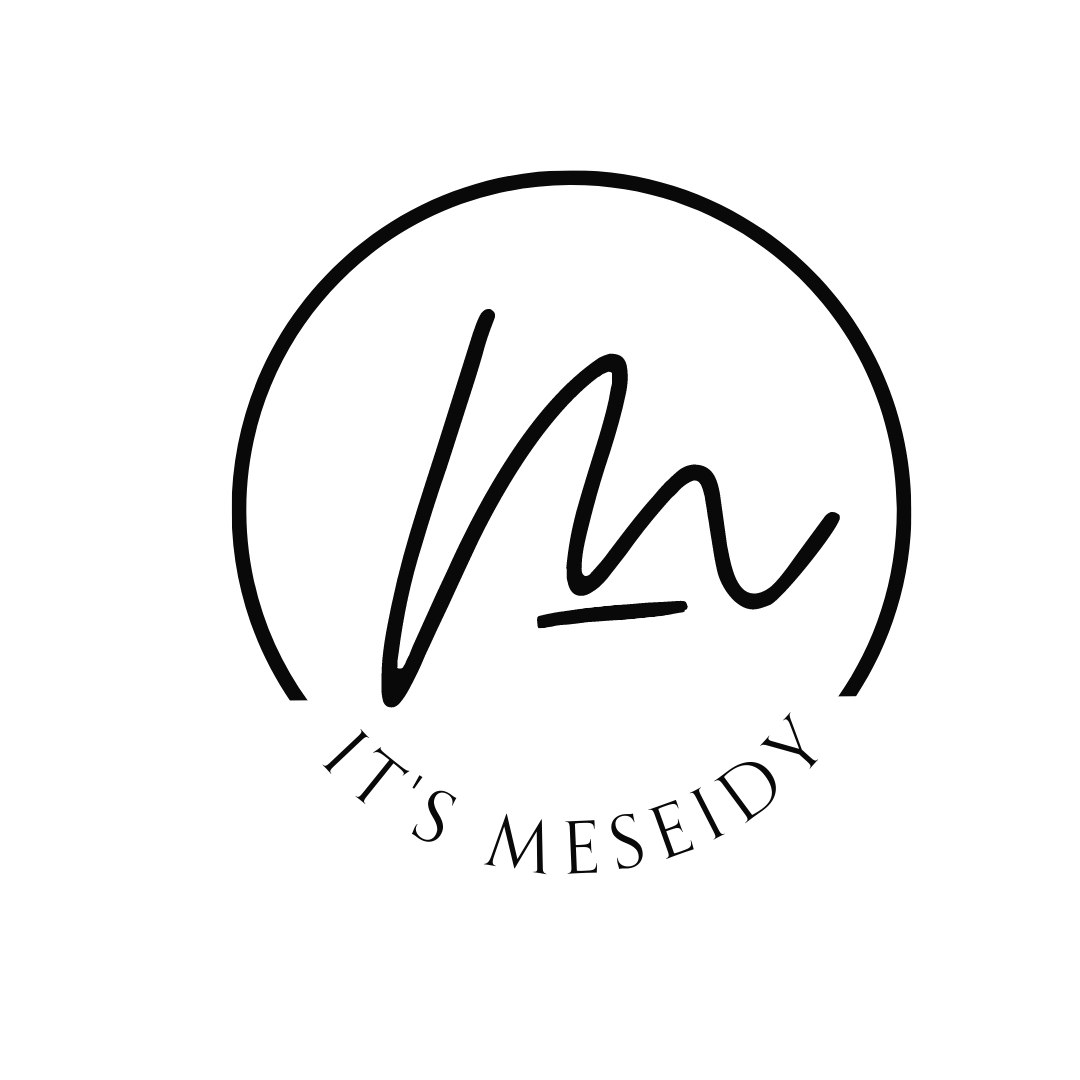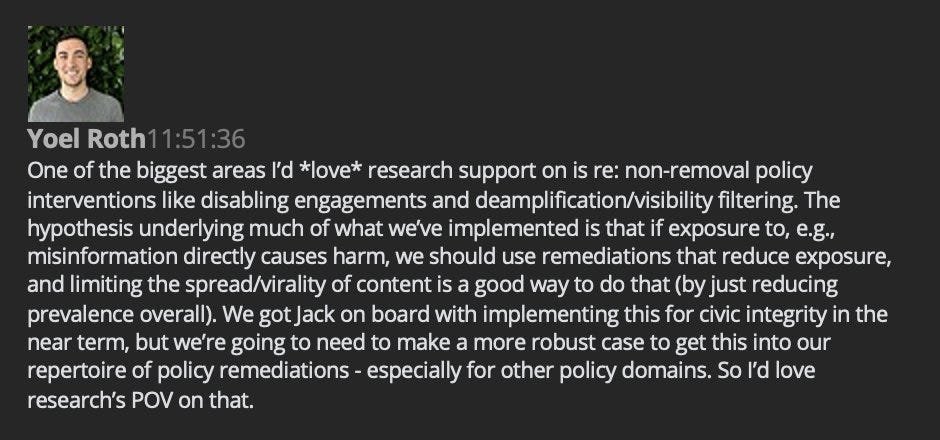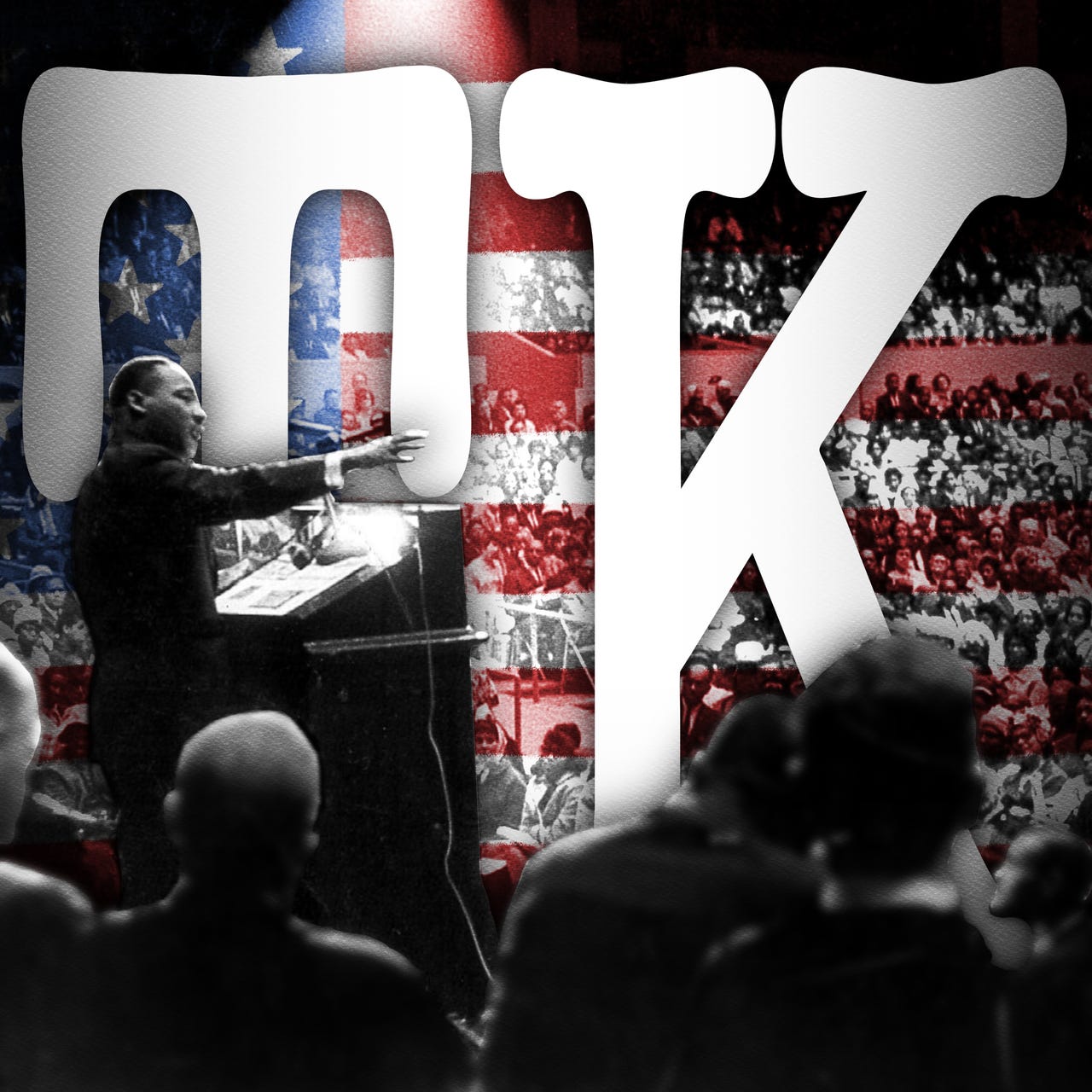The Twitter files have been released at a slow drip on Twitter. Initially, I thought the strategy was a good idea, but as time went by, I began to rethink my initial thoughts.
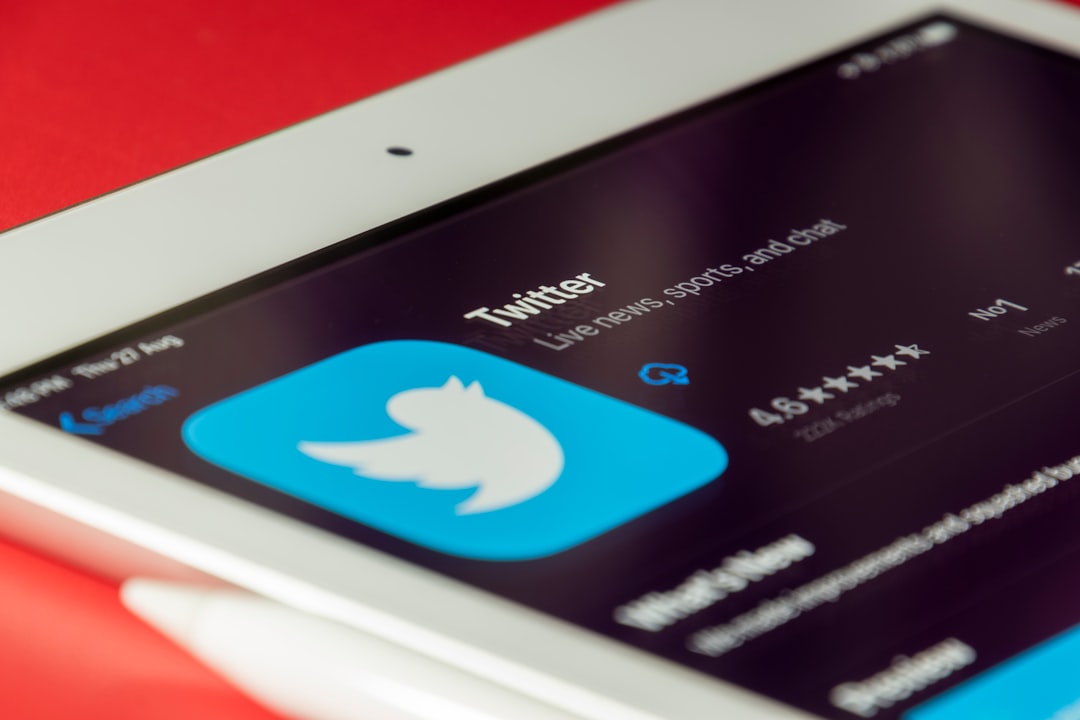
In a time when people's attention span is short, it is hard to focus on such a complex story when it's being released in bits and pieces. Eventually, with time people who are not obsessively consuming news, like myself, begin to lose interest.
If you do not feel guilty, you are the normal person in this relationship.
It can also make it difficult to see the big picture. Especially when those bits and pieces are dense with information.
However, there are stories within stories, and it is challenging to make such a complex story and dense trove of information digestible.
When the Twitter Files first began dropping, many would essentially yawn and say, "Twitter censors content. Tell us something we do not know."
However, these people were premature in dismissing the Twitter Files and reacted in what I would characterize as a defeatist manner.
I understand there is a temptation to shrug and say, yeah, tell me something I didn't know, and go about your business. But that attitude guarantees government overreach and suppression of speech will continue, and no one will ever be held accountable.
Before the release of the Twitter files, the censorship, how users were censored, who was requesting the censorship, and if Twitter collaborated with government agencies to censor users were speculated but not known. Only partially known. And it was only after several threads of the Twitter Files were released that the extent of the censorship and corruption was fully seen.
When you pull back and look at the Twitter Files as a whole, the bias of Twitter is blatant. For years the left has cried "Twitter is a private company" as a defense. A defense that I always believed was a b.s., but considering the blatant collusion of Twitter and the federal government to silence the free speech of U.S. Citizens, exposed by the Twitter Files, there is no doubt that defense no longer has legs.
Twitter became too happy to act as a defacto Ministry of Truth and assist the federal government with censoring the American people.
The MSM is doing its best to bury the Twitter Files, make excuses, and protect Big Tech and the federal government from accountability.
Am I under some delusion that anything of substance will occur within our federal government to hold anyone accountable or new legislation? No, it's not likely, and any hearings that may come of it will be more performative than anything else.
When the corruption runs this deep, it will take time to undo. Sadly in time, another form will be put in its place. It is the nature of humans.
Will the government find another way to spy, censor, manipulate, and police its citizens? Of course, but that is no reason to be compliant and make it easy for them. We must make it difficult.
This is why it is vital that we, as individuals, know what is happening. Because the more knowledge you are armed with, the more difficult you become to control, and that is how we make a change.
Let’s begin with Twitter’s general practice of censoring and shadow banning or what they like to call “visibility filtering.”
We aren’t shadow banning, just “visibility filtering.”
Following the 2016 election, there was increasing speculation that Twitter was shadow-banning accounts. Primarily Conservative or right-leaning accounts.
But the speculation hit a fever pitch in 2018 after Trump posted a tweet bringing attention to the concerns of shadow banning following a problem with accounts not being auto-suggested in search when people would search for a specific name. Conveniently this "problem" appears to impact mainly conservative accounts.
Trump's tweet forced Twitter to respond to the speculated shadow banning. Vijaya Gadde and Kayvan Beykpour wrote a blog post addressing the question of shadow banning on Twitter. In the post, Gadde defines "what is shadow banning?" As "deliberately making someone's content undiscoverable to everyone except the person who posted it, unbeknownst to the original poster."
Standing on that narrow definition, Gadde denies that Twitter is shadow-banning. In a retweet of the blog post, she emphasizes that Twitter favoring "one specific ideology or belief does against everything we stand for."
The alleged glitch of conservative accounts not appearing when searched, noticed limited visibility, and several other issues ultimately led to congressional hearings in Sept 2018, where Jack Dorsey testified, "Our policies & algorithms do not take into consideration any affiliation, philosophy, or viewpoint."
It’s called visibility filtering.
As much as Gadde tried to narrowly define shadow banning with the release of the Twitter Files, it was evident Twitter was, in fact, shadowbanning. Twitter simply rebranded it as "Visibility Filtering."
Visibility filtering included blocking searches, limiting discoverability, and blocking accounts and posts from trends and hashtag searches without the user's knowledge.
Prominent conservative accounts such as Dan Bongino and Charlie Kirk were slapped with labels such as "Do Not Amplify" and "Search Blacklist."
Guess that search "glitch" wasn't a glitch after all.
When Dr. Jay Bhattaacharya, a Stanford School of Medicine professor, argued that COVID lockdowns were harmful to children, he was placed on a "Trends Blacklist," preventing him from trending on Twitter.
Threading the needle on not shadow banning
According to Gadde, shadow banning is a tweet "undiscoverable by anyone except yourself," so if a user could go directly to a person's profile where all tweets are visible, they are not being shadow banned.
They may not show up on your search or trending list. They may not even show up in your feed, but since you can see the tweets, if you remember to type in the account's full handle, visit their profile, and scroll through their timeline, they are not shadowbanned.
Yet, the account owner won't know that their accounts have been flagged as not appearing in search or trending lists or limited timelines.
Because that is visibility filtering, not shadow banning.
Who decided on visibility filtering?
For entertainment and literary purposes, let’s picture an organization. The setting is bright and modern, with people happily buzzing around sucking down matcha lattes.
Within that organization, there is a smaller shadow organization, made up of an elite, highly connected group of people that attended some of the best Ivy League universities, that sifts through content, determining who is worthy of being heard and who is not. (Strategic Response Team - Global Escalation Team, or SRT-GET).
That shadow organization reports to a smaller, more elite group (Site Integrity Policy, Policy Escalation Support, SIP-PES) that makes the ultimate final decisions on all important issues when it comes to silencing dissenters.
That was Twitter, and this is how it worked.
The implementation of "visibility filtering" was decided by the Strategic Response Team - Global Escalation Team, or SRT-GET.
But if you were a particularly bad boy or girl, because there are only two genders or an account of prominence, your account was escalated to the Site Integrity Policy, Policy Escalation Support, known as SIP-PES comprised of the Head of Legal, Policy, and Trust (Vijaya Gadde), the Global Head of Trust & Safety (Yoel Roth), subsequent CEOs Jack Dorsey and Parag Agrawal, and others.
Mind you, none of this information was disclosed in the Gadde shadow banning post.
So much for transparency.
Twitter’s culture of justifying censorship for the greater good
During the height of the information battle over COVID-19 in 2021, Yoel Roth, Global Head of Trust and Safety, messaged an employee on the Health, Misinformation, Privacy, and Identity research team and presented the idea that if exposure to misinformation causes harm, Twitter should do its best to reduce exposure by limiting the spread and virality of the content.
The same logic was later applied to the account Libs of TikTok (LoTT), suspended on six occasions in 2022 for as long as a week.
Each time LoTT was suspended, she was told it was because she had violated Twitter's policy against "hateful conduct." Although all she did was republish public TikTok. It's not her fault these people were putting their crazy on display.
An internal memo from October 2022 tells a different story. SIP-PES, the ultimate arbiters of who has the right to speak, admitted that LoTT did not "directly engage in behavior violative of the Hateful Conduct policy." But the suspensions were justified because of how others may behave in response to her Tweets.
Conclusion
At Twitter's inception, the mission may have been for people to communicate and express themselves freely. Still, it is clear that that mission only applied to thought who were saying the right things as determined by Twitter's internal Ministry of Truth.
If I wanted to be generous, I would say Gadde massaged the truth when confronted with the accusations of shadow banning by narrowly defining it and internally branding it as "visibility filtering." But she flat-out lied, using semantics as a defense.
Not only have we learned that Twitter at the time was, in fact, shadow-banning, but we also learned how they did it. By tagging individual accounts with tags like "Do Not Amplify," "Search Blacklist," and "Trends Blacklist."
By early 2022 it was proposed to limit the visibility and virality of tweets and accounts not because they had violated Twitter's TOS but because Twitter determined they could lead to others responding in a hateful or harmful way.
Limiting speech because an opinion could lead others to act in a hateful and harmful manner when an individual is not directly calling for such behavior is the equivalent of thought policing.
This demonstrates how Twitter adopted a culture, on its own, of censoring accounts that it arbitrarily and subjectively deemed harmful and expanded "harm" to include the possible behavior of those who consumed content.
Such a broad and overlapping definition of harm gave Twitter the license to silence anyone for any reason.
If you want more details on the Twiter Files, subscribe to TK News by Matt Taibbi.




